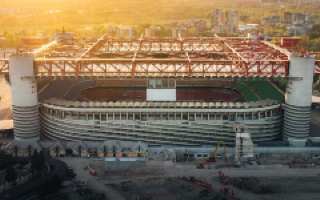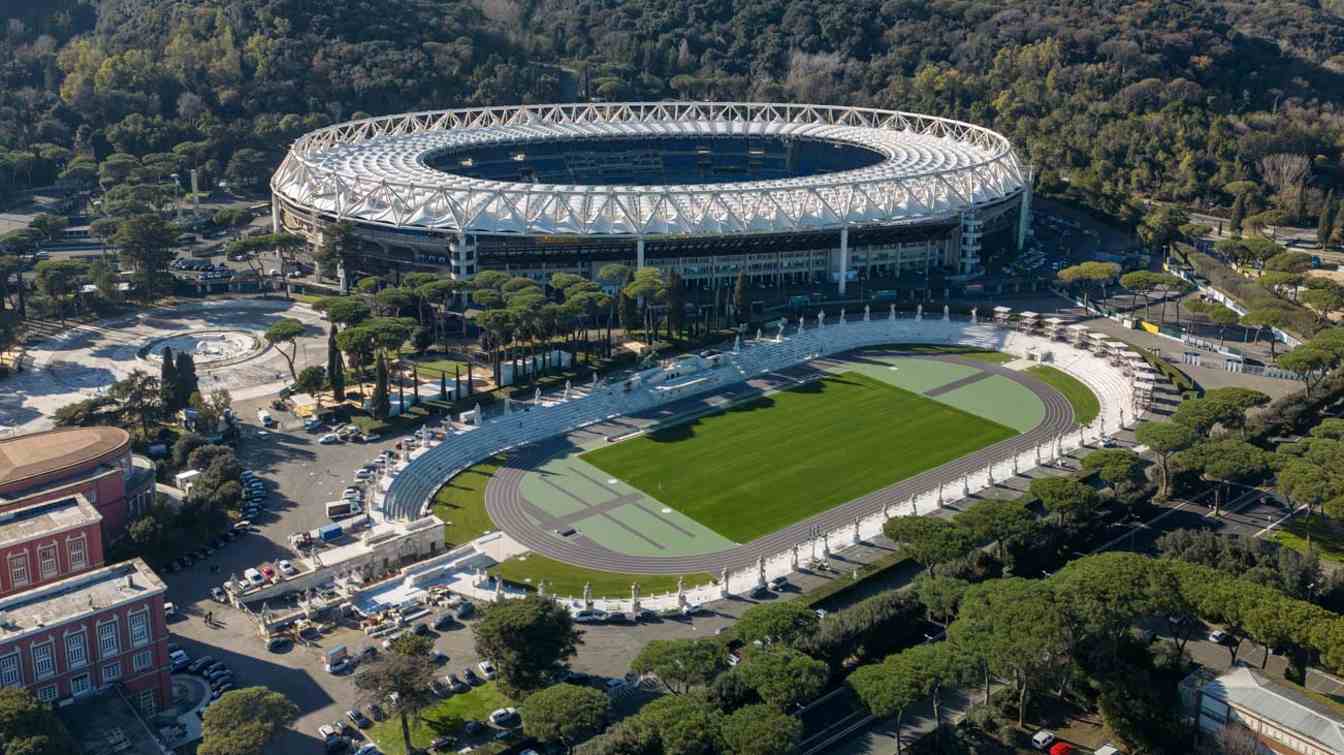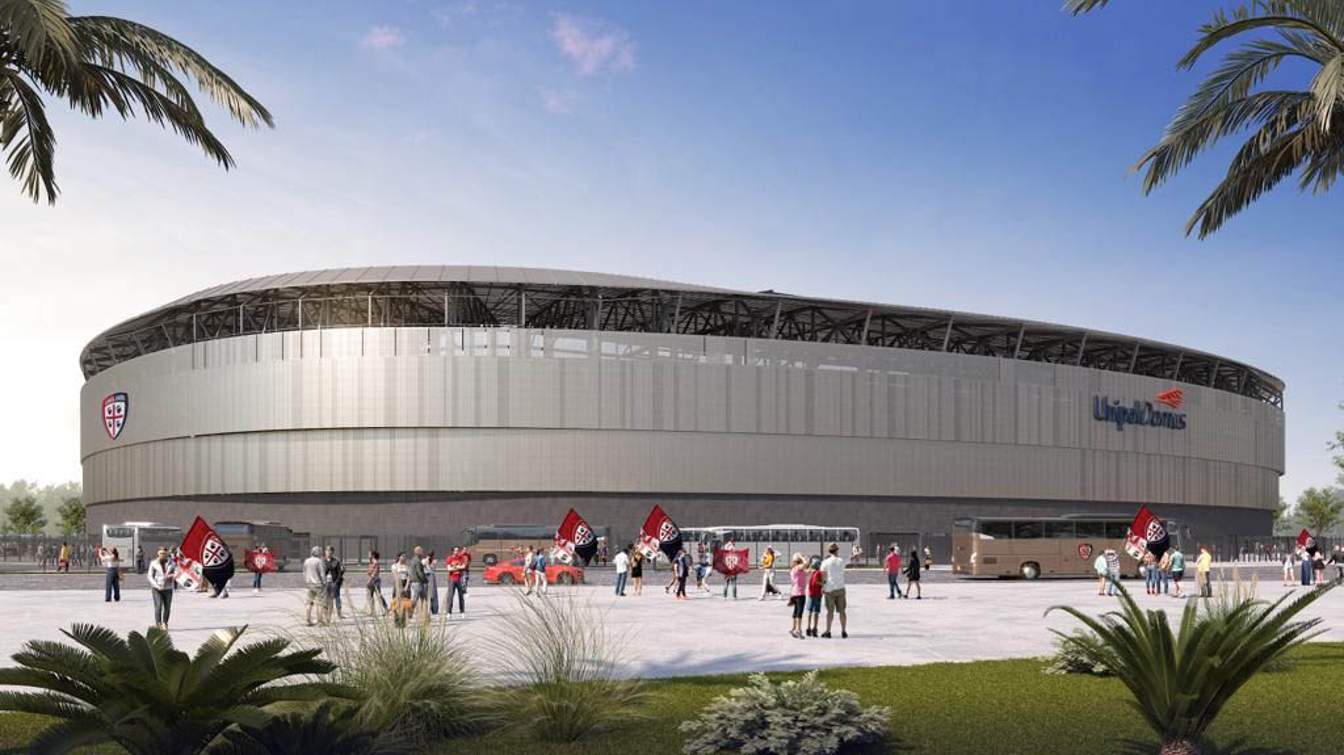Italy: Big problems of Italian stadiums ahead of EURO 2032
source: StadiumDB.com; author: Jakub Ducki
 Italy's sporting infrastructure is in need of major investment ahead of EURO 2032. Michele Uva, UEFA's executive director, during an interview, expressed concern about the state of Italy's stadium preparations for the prestigious event, adding that only one venue meets the requirements, while others face further obstacles. Will Italy manage to complete the projects in time?
Italy's sporting infrastructure is in need of major investment ahead of EURO 2032. Michele Uva, UEFA's executive director, during an interview, expressed concern about the state of Italy's stadium preparations for the prestigious event, adding that only one venue meets the requirements, while others face further obstacles. Will Italy manage to complete the projects in time?
Advertisement
Little progress on upgrades
The current situation in Italy is alarming. Despite a year having passed since the announcement of the awarding of the championships, progress in upgrading stadiums has been negligible. Michele Uva, UEFA's executive director in charge of sustainable development, stressed that only Allianz Stadium in Turin is ready to host the games. The rest require significant investment and modernisation work. Olympic Stadium in Rome, although needing only minor improvements, is still not fully ready to host international teams and fans. The biggest problems, however, concern the famous San Siro, which ,according to Italian media, will not host the 2027 Champions League final.
San Siro is becoming increasingly outdated. It no longer meets the modern standards that UEFA imposes. Uva cited examples from other countries where equally important and iconic venues such as Wembley and Maracanã have been redeveloped to become modern stadiums. He pointed out that despite the sentimental value of the San Siro, it was time for a radical change. In his view, both Milan clubs, Inter and AC Milan, deserve their own modern facilities that can generate adequate profits and meet the demands of today's football. The current construction of San Siro does not provide such opportunities.
 © Messapi (CC BY 4.0) | Stadio Olimpico
© Messapi (CC BY 4.0) | Stadio Olimpico
Need for a long-term infrastructure policy
UEFA, as Uva points out, requires Italy not only to upgrade the five stadiums that will be able to host Euro 2032 matches, but also to change its approach to infrastructure policy. Focusing only on these few large venues could lead to a further widening of the country's structural gap. According to Uva, investment in smaller and medium-sized sports facilities is also needed, allowing for the sustainable development of football across the country, not just in its largest cities.
Uva gave the example of Turkiye, which has built thirteen new stadiums in recent years, not all of which will host the Euros. Italian football, in order not to lag behind the rest of Europe, needs a similar approach. Without widespread modernisation, Italy could face a lack of suitable conditions for young talent and smaller clubs in the future.
Financial problems on island
The project for a new stadium in Cagliari, although supported by various stakeholders, still faces numerous difficulties. Giovanni Malagò, president of the CONI or Italian Olympic Committee, makes it clear in his statements that the construction of the new facility is a complex undertaking. I believe that Cagliari is an example of the complexity of the success of building a new stadium, despite the cooperation of the club, the local authorities and the support of national institutions
- said the CONI president.
 © Cagliari Calcio | Design of the new stadium in Cagliari
© Cagliari Calcio | Design of the new stadium in Cagliari
One of the key problems is financial. Malagò makes it clear that CONI, despite its full cooperation in giving its opinion and approval, is unable to support the project financially. "From a financial point of view, we are not in a position to help” Malagò stressed. This means that it will be crucial to find alternative sources of funding to move forward with construction. Without adequate funding, it will be difficult to complete the investment in the expected timeframe.
During his visit to Cagliari, Malagò made it clear that CONI is fully committed to assisting with the project, but only in formal matters. The committee is supporting the processes related to the stadium's homologation, the issuing of preventive opinions and the approval of construction plans. As CONI, we cooperate completely in terms of feasibility, approvals and preventive opinions on projects
Malagò stressed.
Changing administrations and lengthy process
In addition to financial issues, administrative changes are standing in the way of the project, often resulting in delays and modifications to plans. Malagò points out that changing local administrations may want to re-examine the project, which on the one hand is understandable, but on the other hand leads to further delays. Local administrations are changing, so it's only fair that those who come want to understand and see it
Malagò explains.
Administrative changes and the constant shift in approach to infrastructure projects is one of the most important challenges facing not only the Cagliari authorities. But Cagliari is not alone, it is in good company with other cities
says Malagò, pointing out that similar difficulties are affecting many Italian cities that are planning to build new stadiums for the 2032 European Championships.
Advertisement
 StadiumDB
StadiumDB